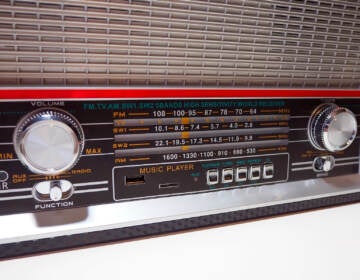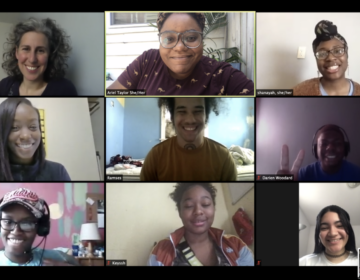Community media makers in Philly feel ‘rug pulled out’ with proposed FCC rule change
PhillyCAM, which runs the city’s public access channels, celebrates its 10th anniversary this fall, but a proposed federal rule change threatens its funding.
Listen 4:17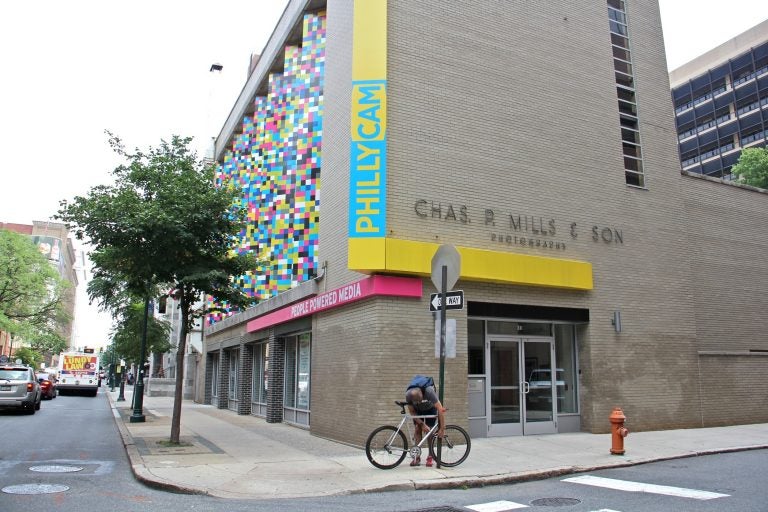
PhillyCAM at 7th and Ranstead streets. (Emma Lee/WHYY)
In her native Venezuela, Arianne Bracho had to be careful about the topics she broached on a community radio show she hosted.
“That station’s editorial line had to jive with the government’s,” Bracho said. “That made it harder to talk about certain topics.”
That’s not the case at PhillyCAM, her show’s new home.
The Philadelphia nonprofit is about to celebrate its 10th anniversary this fall. It runs one of the city’s public access TV channels and a radio station — Bracho makes Spanish content for both platforms.
Producers have free range on the topics they cover, from black sci-fi and spoken-word poetry to Haitians in Pennsylvania and indigenous issues in Latin America, she said.
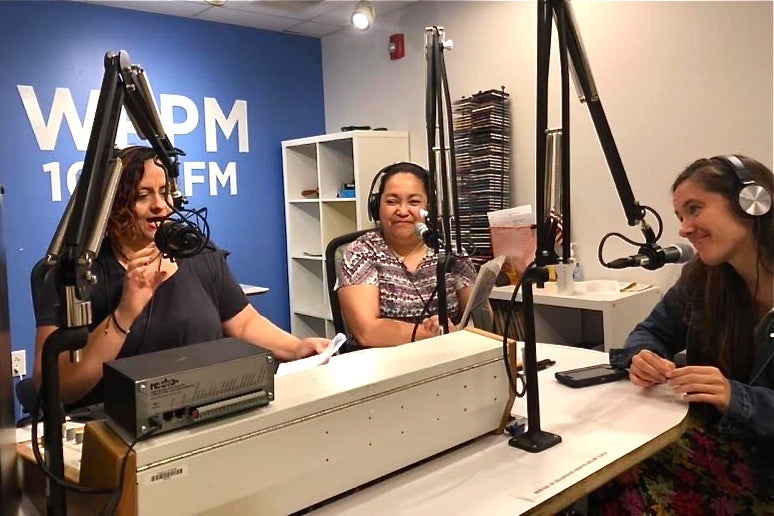
But community media advocates warn that the structure that makes these culturally relevant shows possible is threatened by a proposed Federal Communications Commission rule that would change how PhillyCAM is funded.
How public access channels work
To operate in Philadelphia, Verizon and Comcast paid the city $22 million last year. That money went into the general fund, a portion of which goes to maintaining the public rights of way where cable companies install their wires.
The fees cities charge cannot exceed 5% of a cable company’s gross revenue.
In addition to the fees, local governments have traditionally gotten public, education, and government (PEG) access channels at no extra cost.
In Philadelphia, Verizon and Comcast agreed to set aside up to 11 of these channels.
Now, the FCC wants to allow cable companies to assign these channels a market value and to subtract the value from the fees paid to municipalities to maintain the streets.
The case for changing the current structure? The FCC says municipalities are taking advantage of a loophole.
In a 2018 fact-sheet about the rule, the commission said municipalities “should not be permitted to make an end-run” around the 5% fee cap by also asking companies to “assume the costs of cable-related, in-kind contributions.”
PhillyCAM and 2,000 other channels across the country would be affected by the rule change.
If it takes effect, PhillyCAM executive director Gretjen Clausing said the city would be left with a choice: have fewer dollars in the general fund or kill the channels it gets from cable companies.
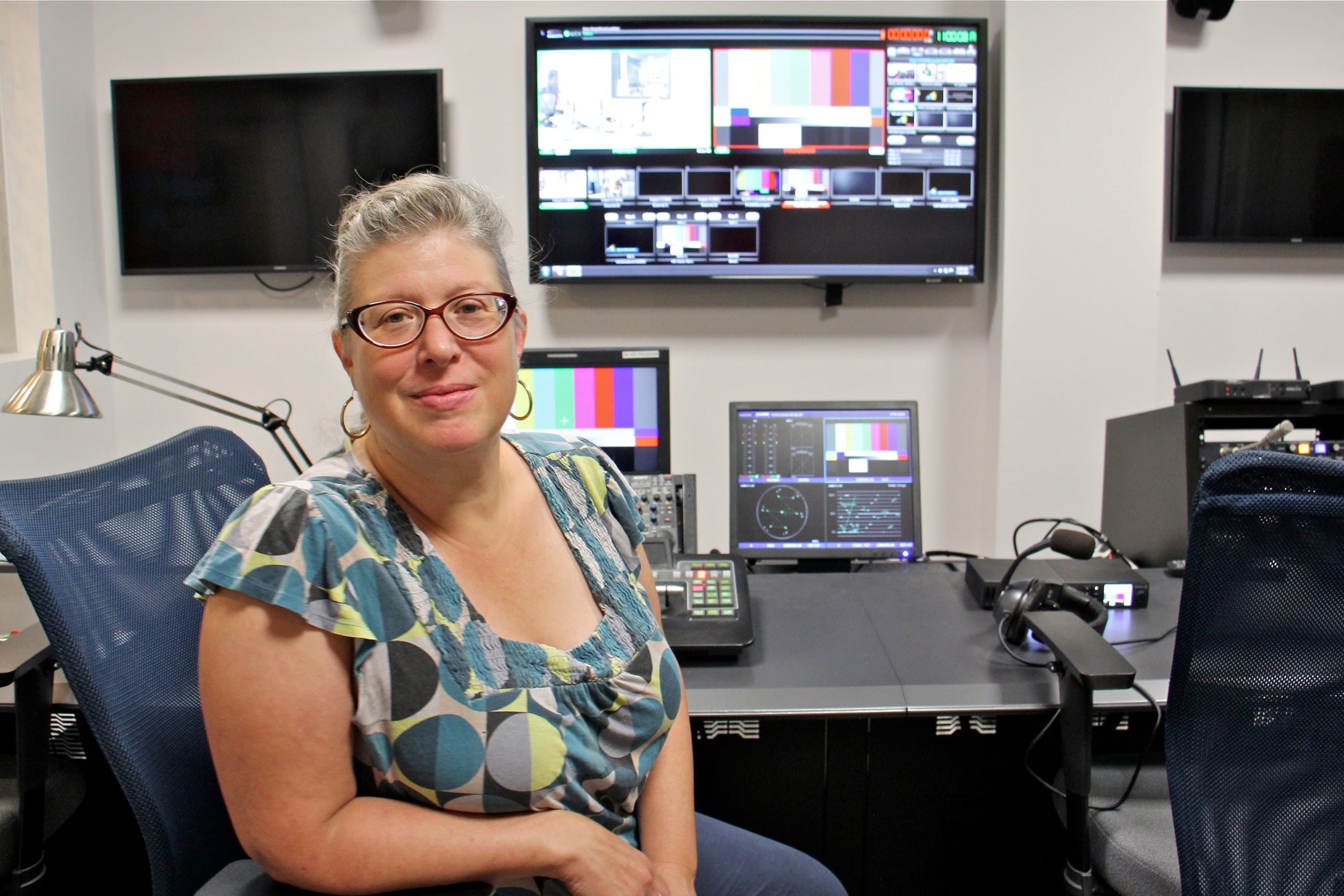
“Knowing that there are a lot of financial constraints on the city budget, as much as they may support and believe in the importance of these local channels, they will probably be in the position of needing to take the money,” Clausing said.
Losing the channel would also make PhillyCAM ineligible for grants that come from “PEG” fees you see on your cable bill.
For PhillyCAM, that amounts to about 70% of its operating budget, which pays for producer training.
“Before the city can make any decision related to PEG channel operations, it would need to review and assess the final rule as adopted,” said city spokesman Mike Dunn.
The city joined dozens of other municipalities in submitting public comments to the FCC opposing the rule.
What producers and communities stand to lose
It comes at a time when PhillyCAM is trying to better reflect the communities it serves. Three years ago, the station launched Spanish-language producer training, which is how Bracho got involved.
That initiative has inspired a wave of new Spanish-language programming.
Now that Bracho doesn’t have to worry about Venezuelan censorship, she likes to produce shows that can “inspire dialogue” in Philadelphia, even if it means wading into sensitive topics.
One Friday, Bracho invited a community journalist to take listeners back to 2012, when the Canadian “SlutWalk” came to Quito, Ecuador. The marches took off across the globe after a Toronto police officer said women should “avoid dressing like sluts in order to not be victimized.” Women marched in skimpy clothing to reclaim a word they said is used to blame victims of gender-based violence, a widespread problem in Latin America.
Bracho urged her listeners to keep an open mind about the show’s use of the word.
“It’s a word that’s obviously used to attack, but we’re saying it on this show to demonstrate the weight of what’s happening in the moment we’re describing,” Bracho told her listeners.
Clemencia Rodriguez, a professor at Temple University who studies community media, said PhillyCAM plays a crucial role in a healthy media ecosystem, creating alternate paths for media makers who would otherwise have to bear the prohibitive costs of journalism school.
The stories made by producers who live locally are also less like likely to paint whole swaths of neighborhoods with the same brush, according to Rodriguez.
“They know how complex their communities are,” she said of some that are typically covered because of poverty and crime. “But they also know the community is much more than that.”
Equally important, Rodriguez said stations like PhillyCAM build media literacy in communities “and many times they go on to be community leaders,” as echoed by producers like Bracho, who said the nonprofit offered her more than studio space.
“Here, they form you … They give you the opportunity to develop so you could make community television or radio, but of a better quality,” Bracho said. “That’s important because it’s not to make for the sake of making or speaking for the sake of speaking.”
Channel operators plan to fight back
“We’re getting ready to celebrate our 10th anniversary and feeling like we’re just in this moment of kind of this critical mass of new producers and content that’s being produced, and we’re going to have the rug pulled out from beneath us,” Clausing said.
Still, if the FCC adopts the rule change, PhillyCAM’s doors wouldn’t shut overnight. The city says it wouldn’t make any decisions until it studied the final rule change.
Clausing also believes the rule would be challenged in the courts, though PhillyCAM would still have to rethink its entire operation in the meantime.
The FCC is expected to vote on the rule in a meeting Thursday in Washington, D.C. and a batch of PhillyCAM producers plan to attend.
WHYY is your source for fact-based, in-depth journalism and information. As a nonprofit organization, we rely on financial support from readers like you. Please give today.


